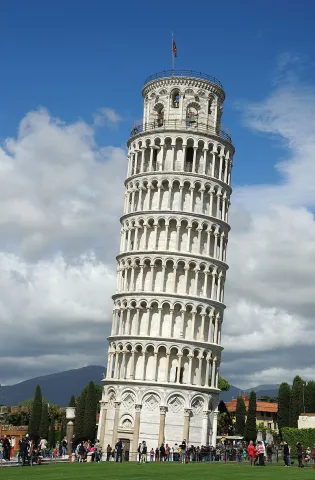The Rule of Law, the EPO and the Ugly Writing on the Wall
May 25, 2017
Germany has unfortunately no Fordham conference where an impressive number of eminent IP scholars, judges and practitioners, including even representatives of the EPO, get together once every year to discuss the state of the patent universe and future developments. However, Germany does luckily at least have its Max Planck Institute for Innovation and Competition in Munich, which – as Prof. Jeremy Philips once succinctly put it – given its impressive track record over the past decades for highly focused and responsible, reasoned analysis of intellectual property issues, has earned the right to be listened to and its comments taken seriously. Thus, we also from time to time hear something interesting in Munich, at least if we give priority to spending a sunny and warm late Friday afternoon in a crowded MPI auditorium rather than in one of our beer gardens.
Setting the Scene
The MPI has been courageous enough to invite an eminent speaker to give a lecture on a topic that may sound curious or even somewhat provocative to some – note the question mark, though: “The Patent Granting Practice under the EPC – Erosion of the Rule of Law?” Enter Professor Dr. Siegfried Bross (German spelling: Broß), an extremely cultivated elder gentleman who speaks in a soft voice with this inimitable Swabian accent that non-Germans may remember from interviews with Albert Einstein. Before summarizing his lecture, it may be appropriate to introduce the lecturer to the international readership of this blog. Professor Bross has had a long and splendid career as a German judge; in particular, he spent twelve years (1986-1998) on the Xth Civil Panel [Zivilsenat] of the Federal Court of Justice. This Panel is, among other things, responsible for all patent cases at this court and is thus Germany’s top patent instance. And to top even that, Prof. Bross was then appointed to become one of the sixteen judges of the German Federal Constitutional Court, where he served for another twelve years until he retired in 2010.
Therefore, it is probably fair to say that Prof. Bross is the only German judge who has extensive hands-on experience both in patent law and constitutional law. It also goes without saying that this background alone has earned him the right to both be listened to and for his comments to be taken seriously. Whether you agree or disagree with them is another question and left to your own good judgment.
The MPI organizers of this afternoon session had hoped that Prof. Bross’s lecture would be followed by a lively discussion among a panel that included, inter alia, a representative from the EPO and one from the German Ministry of Justice. It is regrettable that this was not to be, since these two representatives did not show up. I will not speculate why and rather give credit to the only previously announced panellist who actually appeared, Judge Voit from the Federal Patent Court. Prof. Bross dryly remarked at the beginning of his speech that even the composition of the podium seems to have caused considerable tension. To ease such tensions and enable a serious and constructive dialogue, Prof. Bross encouraged all institutions and stakeholders to get into regular discussions with each other, but acknowledged that little can be done if institutions refuse to enter into such a dialogue. So much for that.
The Lecture
Let us now turn to the message of Prof. Bross’s lecture. His key thesis was that the basic framework of the EPC is not sustainable under the principles of the rule of law (“das Grundgerüst ist nicht tragfähig nach rechtsstaatlichen Grundsätzen”), and that the recent EPO reforms with regard to the Boards of Appeal are “ohne rechtsstaatliche Substanz” [without any substance in regard to the rule of law]. Boom.
Prof. Bross’ main criticism of the EPC framework was that it does not sufficiently respect the necessary separation of powers and does not sufficiently observe democratic rules and responsibilities. He argued that the Administrative Council and the EPO management negotiate structures without any parliamentary discussion, contrary to the established jurisprudence of the German constitutional court. He reminded the audience that the EPO legal order is not an integral part of the EU legal order nor is it identical to or even harmonized with it, even though many Member States of the EPO are also EU Member States. And he criticized the EPO Member States for having established an almost omnipotent executive with no proper checks and balances by an independent judiciary.
On the latter point, Prof. Bross expanded that it is, firstly, not acceptable that the control of EPO management decisions in staff matters is pushed aside and delegated to the ILO rather than to a proper court. Secondly, he took the position that the EPO’s immunity cannot and should not extend to staff matters and budget matters. In his view, the natural immunity of a state must be distinguished from the derogated immunity of an inter-governmental organization such as the EPO. In addition, he argued that the EPO Member States also have an obligation to look after the humans employed by the EPO.
“States are not allowed to unite in such a way that humans become objects”,
said the Professor, according to my notes. The legitimate, individual basic rights of the people employed by the EPO are currently not sufficiently secured by an independent judiciary, in his opinion.
Thirdly, Prof. Bross made it crystal clear that in his opinion the members of the EPO Boards of Appeal are not independent for various reasons enshrined in the EPC. Turning first to the status before the recent reforms, Prof. Bross went as far as to say that the lack of personal independence of the Board members is out of question (“steht außer Frage”): One of the main reasons therefor is that the Board members are (only) appointed for five years (Art. 23(1) EPC) on a Proposal by the EPO President and may (but do not have to) be re-appointed by the Administrative Council, after the President of the EPO has been consulted (Art. 11(3) EPC). This alone, argued Prof. Bross, generates a dependency of the judiciary on the executive organs. Prof. Bross said that he has traveled through the world quite a bit to advise developing states on how to establish the rule of law and an independent judiciary. Life-time appointments (up to retirement age) are and should be the norm to secure the independence of judges. The executive organs cannot and must not be allowed to supervise the judiciary.
This status has, in Prof. Bross’ view, not been changed by the EPO’s recent reforms of the Boards of Appeal, which he designated as “cosmetic” and "rechtsstaatlich bedeutungslos" [meaningless with regard to the rule of law]. The separation of premises (rather than powers) seems to have been in the foreground, argued the Professor, but is completely senseless for rebutting the fundamental criticism against the legal structure of the EPO and moreover unnecessary from a practical point of view. Prof. Bross mentioned that, for instance, the German Federal Court of Justice has shared its premises with the Federal State Prosecutors for decades. What really matters and what should be proven is the personal and actual independence of the judiciary. A factor that speaks against such independence is in his view, for example, that the Boards of Appeal do not have a separate budget that the new President of the Boards of Appeal can freely administer. Furthermore, the problem of a possible internal bias due to concerns about a board member’s further professional development within the EPO has not been fundamentally tackled.
Having said that, Prof. Bross turned to the EU Patent Package and the Unified Patent Court Agreement (UPCA). In his opinion, the EP-UE and the UPC do not improve the present situation in any way, since there is still no legal protection for the applicant or patentee whose application or patent is refused or revoked by the EPO. The deficits of the European Patent Convention have in no way been remedied by the new court, since this court does not have sufficient authority to vacate or correct decisions by the EPO. Since the EPC does not satisfy the constitutional principles of the rule of law and the UPC has no power to overrule the EPO, no protection of rights is established that would be in conformity with the constitution. Prof. Bross reminded the audience of the decision of the German Bundesverwaltungsgericht [Federal Administrative Court] of 1959 where it was stated that the Boards of Appeal of the German Patent Office were no courts within the meaning of the Basic Law (the German constitution), and that the constitution requires that legal redress to a court must be possible against decisions by the German Patent Office as part of the executive branch.
(Hope you have enjoyed the sensational blunder in the screenshot of the key note of the decision in this data base.) This decision eventually led to the establishment of a new court, namely the Federal Patent Court.
In view of the aforementioned grave constitutional concerns and in view of Brexit, Prof. Bross remarked that he also fails to understand why there would now be a need to ratify the UPCA from a German perspective. He advised that one should rather think more deeply about the consequences and cautioned against hastily ratifying an agreement that in itself perpetuates rather than cures the deficiencies left by the European Patent Convention.
The Potential Consequences
All well and good, you might think, but how likely is it that this academic lecture by an eminent professor will have any impact on your and my daily business? Both the governments of the UK and of Germany have taken the position that they will ratify the UPCA as soon as possible, never mind Brexit; moreover, the EPC structure has been settled for decades and is very hard to change anyway, so why should one even bother discussing it?
Here is the answer. The 2nd Panel of the German Federal Constitutional Court intends to hear this year four constitutional appeals regarding infringement of Art. 2(1), Art. 19(4), Art. 20(3), Art. 24(1), and Art. 103(1) of the Basic Law “on the grounds of insufficient legal protection at the European Patent Office against decisions by the Boards of Appeal”. And what if the Federal Constitutional Court finds that one or all of the rights of free development of personality (Art. 2(1) BL), the right to have recourse to a court (Art. 19(4) BL), the principle of the rule of law (Art. 20(3) BL), the Federation’s right to transfer sovereign powers to an international organisation (Art. 24(1) BL) and the right to be heard (Art. 103(1) BL) were violated by Germany’s accession to the European Patent Convention in its present form?
Then, Houston, we will have a problem: I would say you can see DEPOXIT written on the wall.
Namely, either will the EPC then have to be amended by setting up a true and independent Court of Appeal (which raises questions whether and how this should be intertwined with the UPC), or Germany will sooner or later have to leave the European Patent Organisation. Perhaps Prof. Bross’ advice of not being hasty with ratification of the UPCA and rather taking the time to think the legal structure through again (as painful as this may be) is right: It may be better to first double-check your (legal) fundaments before building your house thereon – the consequences can be quite dramatic...
(Source)
Or, to put it the other way round: If the UPCA were to be ratified in, say, September and if two months later the European Patent Convention were to be declared unconstitutional, this might also pull the rug out from under the UPCA.
The resulting mess could have epic dimensions. And this time it will not even be due to the Brits, but due to the German Constitutional Court.
Thus, stay tuned! We indeed live in interesting times.
You may also like

















zoobab
I think he also failed to mention that rules of procedure have to be made by parliaments, not an administrative committee. And there is also caselaw on that in Germany.
Ravel1
One reason why Germany has no equivalent to events like the Fordham conference may be that there are currently pretty close to zilch "eminent IP scholars" at German universities with the necessary understanding of how patent law works in practice, apart from probably at the MPI. Tell me one active German university professor outside the MPI who has provided meaningful input in the context of the EU patent reform. I cannot remember even one. Bearing in mind the case numbers dealt with in German courts every year, this absence of academic input is almost incredible and highly regrettable.
HML Holtz
Vortrag von Prof. Siegried Bross am Max-Planck-Institut: Prof. Bross (Richter am Bundesverfassungsgericht a.D.) hat klargestellt: Die nationalen Staaten - allen voran die Bundesrepublik Deutschland -- verletzen ihre Fürsorgepflicht gegenüber ihren Staatsangehörigen, wenn sie diesen als Mitarbeiter des Europäischen Patentamts nicht die garantierten Grundrechte gewährleisten. Deutlicher kann man es nicht sagen und es würde der deutschen Politik gut anstehen, wenn man sich dieses bei internationalen Organisationen immanenten Problems endlich widmen und es lösen würde.
MaxDrei
There are two topics here: 1) the precious separation of powers and 2) the equally precious human rights of EPO employees. It is unconscionable of the EPC Member States to have been so careless with the natural human rights of the employees at the EPO. But, in their defence, which of them could have foreseen the emergence of an EPO President would have been so disrespectful of these basic human rights? As to the independence of the Boards of Appeal, with all due respect to the learned Professor and Constitutional Legal Expert, I think this is a fuss about nothing, a hare 8or a distraction)deliberately set running by the wily EPO President, the same guy who treats his employees with such cavalier disregard for their rights. The Boards of Appeal cannot deprive anybody of any rights. All they can do is rescind the grant by the EPO of a patent. We can see why France wants to wipe out DG3. The UPC. Will M. Battistelli shift his bum from his seat at the EPO in Munich onto the President's UPC Seat in Paris, I wonder? But apart from that, I think I now see why Germany has come to see demolition of DG3 as serving its national interest. Again I suggest, a manufactured fuss about something not actually of any importance. Compare the situation in the USA. See what a drama is being made there about giving the USPTO a chance to rescind patent rights wrongly granted. Rescinding a wrongly granted patent: come on people; it's not at all like putting people in prison, or bankrupting a business found to infringe, is it? The Constitution of the USA is big on the separation of powers, checks, balances and so on. But it delegates to The Congress the freedom to set up a patent system. If the Congress wants to give the USPTO the freedom to rescind patents wrongly granted, it can. If the Congress can do this, why not the EPC Member States? What is not right is for the Member States to connive with the EPO President in riding roughshod over the universal basic rights of its employees namely a fair and impartial trial, and not a travesty, a kangaroo court set up by the President, a court in which the outcome is pre-ordained by El Presidente.
Attentive observer
I do not agree with Max Drei that there is a fuss about nothing. The separation of powers is not just for fun. It is the basis of our democratic Western societies. What I take from the lecture, is not only what Prof. Broß said, but that there has been a fundamental flaw in respect of the status of the BA within the EPO when the EPC was set up in the early seventies. The BA were part of the EPO, which is as if one would mix judicative powers with executive and even legislative powers. To be honest, it has worked fine for over 30 years and nobody was worried about the correctness of the situation. It changed when the present President took over. All his predecessors acted in a civilised manner, especially as far as the rights of the members of staff were concerned, and did not consider them prima facie as scroungers which deserve a kick at the lower end of their backs. The BA were perceived as independent as the President never blocked any appointment or reappointment, and never put the viability of the BA in danger. In the following I will only concentrate on the BA. Following R 19/12 his attention was drawn to the BA and some problems which existed due to the fact that the Chairman of the EBA was at the same time VP3 and part of the management of the office. The reaction was brutal and the problems started. Then came the case of the BA member who was allegedly writing libels against the upper management of the Office. Beside some “accidental” leaks in the press in order to put his reputation in question, we still do not know what is held against this person. By expelling him from the premises of the Office he was de facto removed from office during his term, against any rule of law as the Administrative Council requested from the Enlarged Board of Appeal dismissal of the member, but after the Administrative Council had already decided that the member should be dismissed. The lack of separation of powers could not be better demonstrated. It was thus very easy to show that the situation is barely tenable as far as separation of powers is concerned. Prof. Broß severely criticised the reform of the BA and the creation of the BA Unit. It does not improve the situation of the BA, I would even add it worsens its situation. I invite readers to have a careful look at the new Rules 12a-d and 13 EPC. The BA Unit is only apparently independent insofar as the President of the BA only has the functions and powers delegated to him by the President of the EPO. I would not call this independence, as even the budget proposal by the President of the BA can be vetoed by the President of the EPO. What is worse, is that the BA have no direct influence on the Rules of Procedure. The RoP will be decided by the BA committee composed of three members of the Administrative Council, and three external judges. The same goes for re-appointment which is subjected to a performance appraisal by the President of the BA to be submitted to the Administrative Council. Like for the RoP, the criteria for the performance appraisal will be decided by the BA committee. I do not wish for the users of the system that re-appointment of members is only linked to production figures. What about the quality of the work? What has happened in DG1 should not be exported to the BA! But when one sees what the President of the BA has uttered in the latest edition of the “Gazette” (internal journal of the Office, but not confidential), one should not be surprised if this will happen. Anybody thinking that the sum of all this measures will result an increase of the independence of the BA, needs to get some lessons about separation of power and real judiciary independence. It was thus very easy for Prof. Broß to criticise the reform and to show that it was not up to the standards to be expected for a really independent judiciary body. It is good that such an eminent legally qualified person expressed in such a clear and non-polemic way what the problems raised by the reform of the BA, which is nothing more than taking revenge against the BA which do not want to follow what the President wanted. That at the same time he showed as well that the members of the Office are not just machines which do not need any proper conflict resolution system is also good. I fear that the representatives of the contracting states will not have the guts to think about what they did, and tell the President that what he is doing and wanting is wrong and anything but ethical. That the EPO was not represented is ridiculous. If the President of the EPO was so sure about the correctness of his endeavours, why did he not send a representative? A word of warning: this comment may not be used by Techrights or Mr Schestowitz in any form whatsoever.